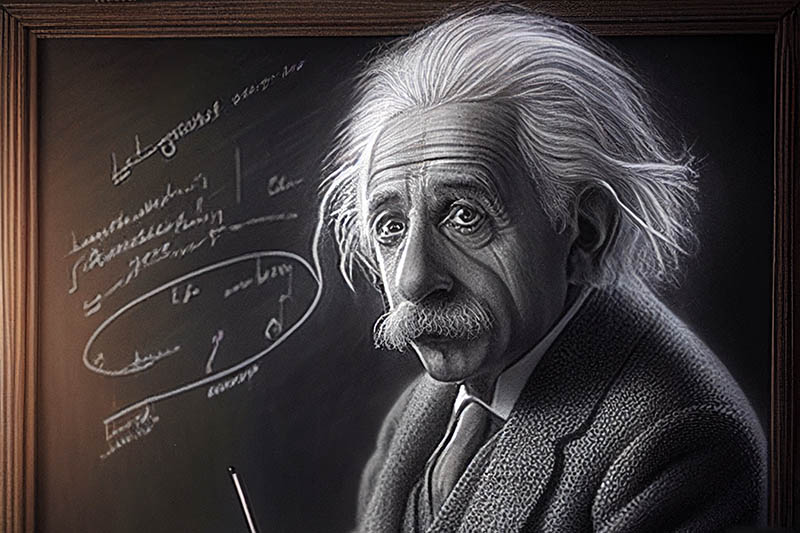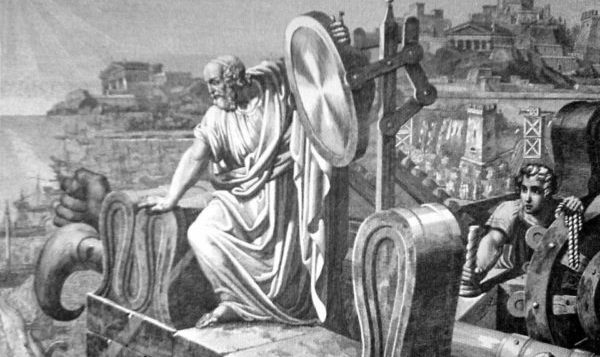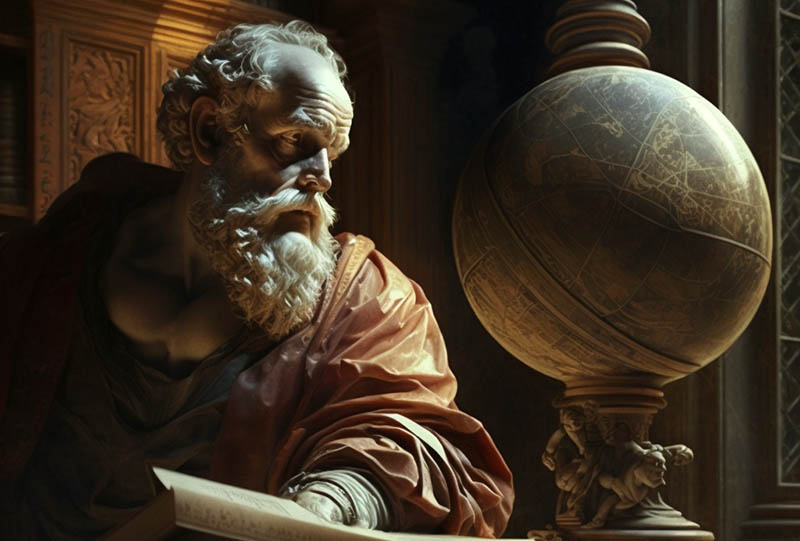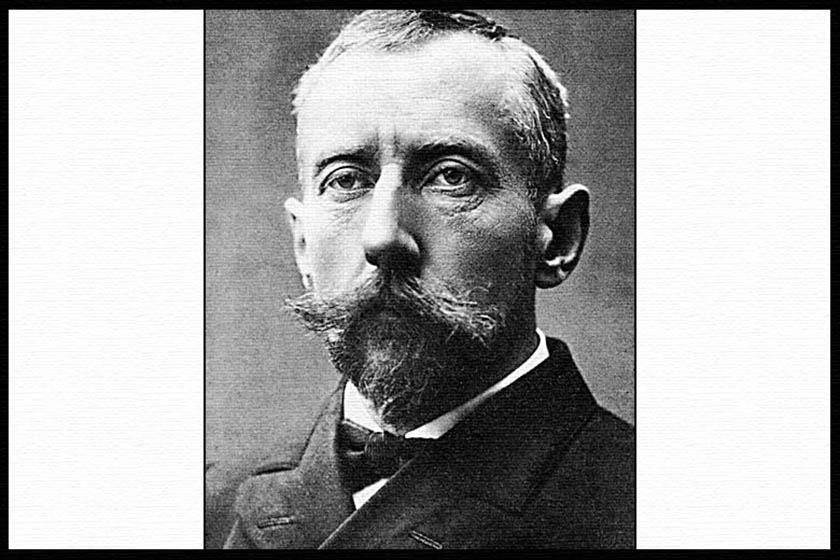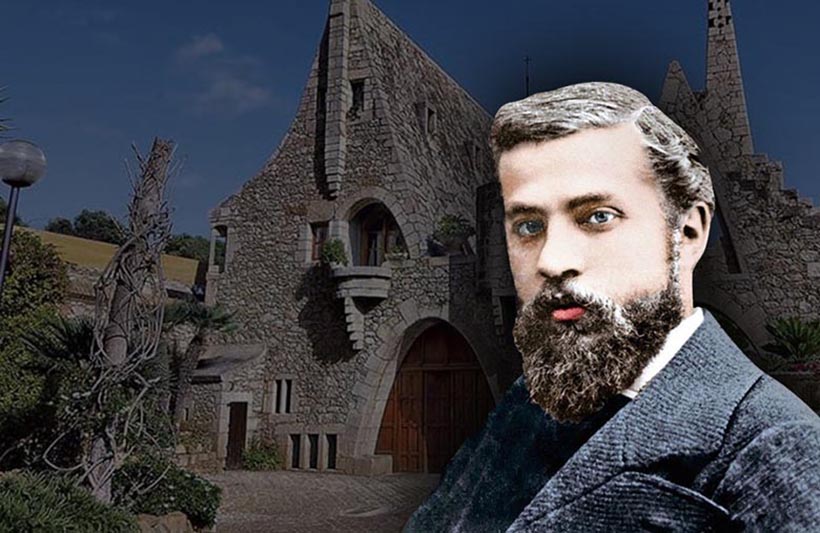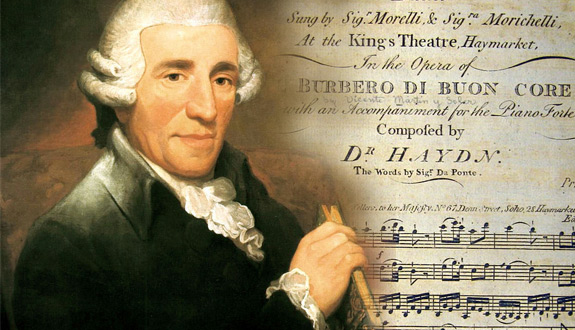Albert Einstein was a brilliant and outstanding scientist. His discoveries changed the world of science forever.
Facts About Einstein’s Childhood
Early Genius
Einstein showed signs of exceptional intelligence from a young age, and he was able to master mathematical and scientific concepts with ease. He was also known for his curiosity and love of learning, and he was fascinated by the workings of the natural world.
Struggles in School
Despite his intelligence, Einstein struggled in traditional school settings and was often bored by the rote learning and memorization required in his classes. He was known to be rebellious and frequently questioned authority, and he eventually dropped out of school.
Love of Music
Despite his scientific and mathematical abilities, Einstein had a deep love of music and was a talented violinist. He often used music as a way to escape from the demands of his work, and he believed that music had a profound impact on his thinking and creativity.
Childhood Illnesses
Einstein suffered from several health problems in his childhood, including a severe case of dyslexia and speech difficulties. Despite these challenges, he remained determined to pursue his interests and was never discouraged from pursuing his passions. He was also used to spending a lot of time at home and did not often go out for fresh air.
Family Life
Einstein grew up in a middle-class Jewish family in Germany and had a close relationship with his parents and sister. Despite the challenges he faced in his childhood, he was known for his sense of humor and positive outlook on life, and these qualities served him well throughout his life and career.
Funny facts about Albert Einstein
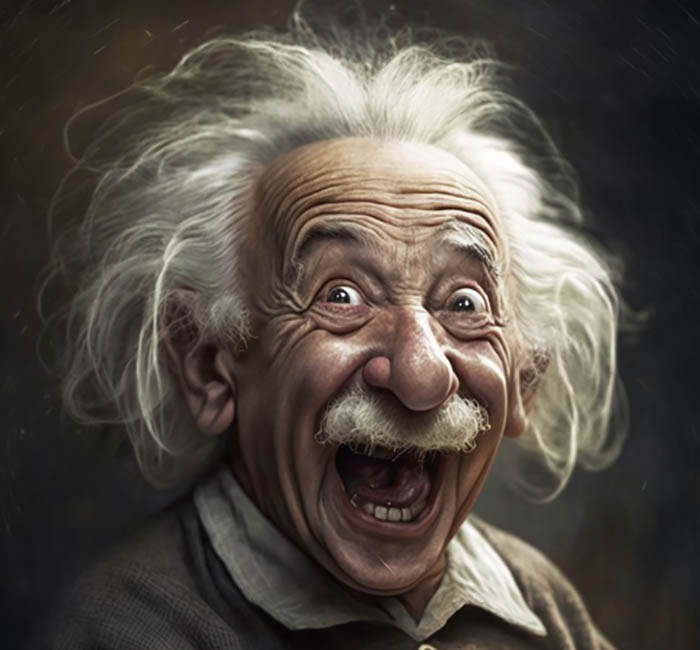
Hairstyle Icon
Einstein is famous for his distinctive hairstyle, which became a symbol of genius around the world. Despite this, he was known to hate combing his hair and often left the house with it sticking out in every direction.
Not So Fashion-Forward
Einstein was not known for his fashion sense and was often seen wearing the same old outfit, regardless of the occasion. He once famously said, “If most of us are ashamed of shabby clothes and shoddy furniture, let us be more ashamed of shabby ideas and shoddy philosophies.”
Bad Driver
Despite his exceptional intelligence, Einstein was a notoriously bad driver and was known to have been stopped by the police several times for traffic violations. When asked about this, he once quipped, “I drive like my theories, faster than light.”
Love for Music
Einstein was a talented violinist and had a lifelong passion for music. He once said that playing the violin helped him to think and that he could not imagine a life without music.
Sweet Tooth
Einstein had a sweet tooth and was known to have a weakness for candy. He would often carry a bag of sweets with him and would eat them between classes when he was a professor. He also once said, “Why is chocolate so irresistible? Because the mouth is super intelligent and can sense that a little chocolate now is a good idea.”
Facts about Einstein’s brain
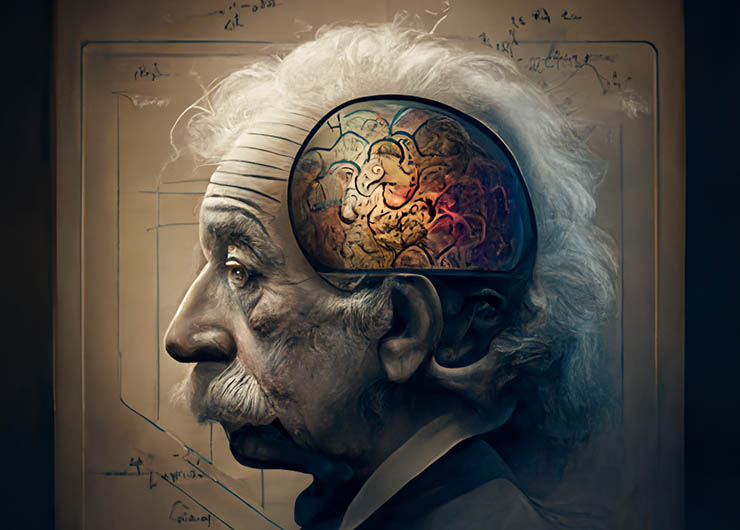
Autopsy and Preservation
After Einstein’s death in 1955, his brain was removed during an autopsy and preserved for scientific study. The man responsible for removing Einstein’s brain, Dr. Thomas Harvey, kept it in his possession for many years without the permission of Einstein’s family.
Study of the Brain
Over the years, numerous studies have been conducted on Einstein’s brain, with researchers attempting to uncover the secrets of his exceptional intelligence. Some of these studies have focused on the size and shape of different regions of the brain, while others have examined the density and distribution of neurons and other cells.
Larger than Average Brain
Initial studies of Einstein’s brain showed that it was larger than the average brain, with a higher number of neurons and a more complex pattern of connections between brain regions. This led researchers to suggest that the size and structure of Einstein’s brain may have been a key factor in his exceptional intelligence.
Some Differences
In recent years, more detailed studies of Einstein’s brain have revealed differences in specific regions compared to the average brain. For example, his inferior parietal lobule, a region involved in mathematical reasoning and spatial awareness, was found to be 15% wider than average.
Controversy
Despite the many studies that have been conducted on Einstein’s brain, the results have been somewhat controversial and the exact cause of his exceptional intelligence remains unknown. Some scientists have challenged the notion that the size and structure of Einstein’s brain alone can explain his genius, and have suggested that other factors, such as his upbringing and education, may have also played a role.
Shocking Facts About Albert Einstein You Never Knew
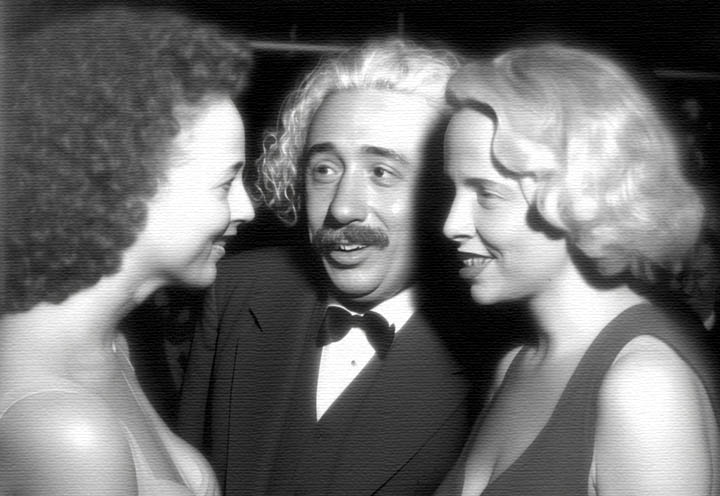
Dropped Out of School
Despite his exceptional intelligence, Einstein dropped out of school and did not receive a formal education beyond the age of 16. He later taught himself the subjects he was interested in and went on to become one of the greatest scientists of all time.
Failed his University Entrance Exam
Despite his exceptional abilities, Einstein failed his university entrance exam on his first attempt. He eventually passed the exam and went on to study at the Swiss Federal Institute of Technology in Zurich, where he began his groundbreaking work in physics.
Had Learning Disabilities
Despite his exceptional abilities, Einstein was diagnosed with dyslexia and struggled with speech difficulties in his childhood. He later credited these difficulties with helping him to develop his unique problem-solving skills and approach to scientific inquiry.
Lost his Citizenship
Einstein renounced his German citizenship in 1933 in protest of the rise of fascism in Germany and the persecution of Jews. He later moved to the United States and became a citizen, but he continued to speak out against fascism and oppression throughout his life.
Had Extramarital Affairs
Despite being married twice in his lifetime, Einstein had several extramarital affairs and was known to be somewhat of a womanizer. Despite these personal struggles, he remained a beloved and respected figure in the scientific community, and his personal life did not detract from his scientific achievements or legacy.
Einstein’s Legacy
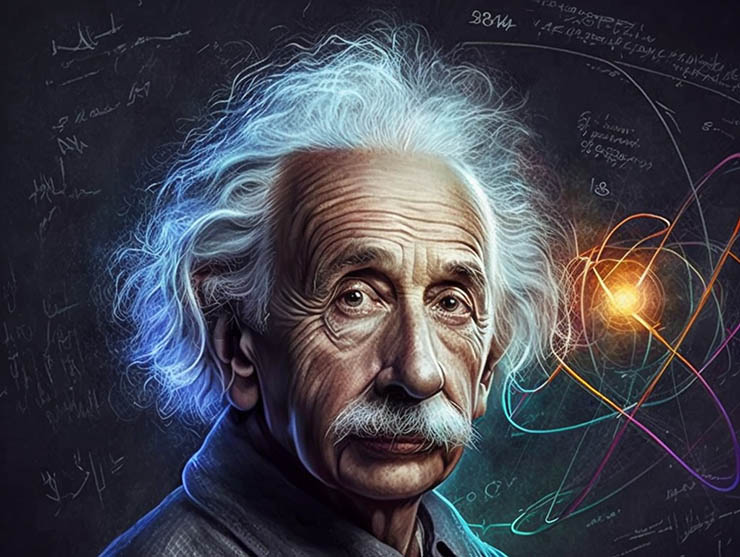
Scientific Contributions
Einstein is widely regarded as one of the greatest scientists of all time, and his contributions to the fields of physics and mathematics have had a profound impact on the world. He is best known for his theory of general relativity, which revolutionized our understanding of gravity and space-time, and his work on quantum mechanics, which laid the foundation for modern physics.
Cultural Icon
Einstein’s image and likeness have become synonymous with genius and creativity, and his distinctive hairstyle and whimsical expressions have become iconic. He is often featured in popular culture as a symbol of intellectual prowess and creativity, and his legacy continues to inspire people around the world.
Political Activism
Einstein was a passionate political activist, and his opposition to war and support for civil rights and freedom of speech made him a symbol of social justice and human dignity. He was also a strong advocate for nuclear disarmament, and his efforts helped to raise public awareness about the dangers of nuclear weapons.
Influence on Education
Einstein’s work and legacy have had a profound impact on education and the teaching of science, and his ideas and theories continue to be studied and debated by students and scholars around the world. He is widely regarded as a role model for aspiring scientists, and his legacy continues to inspire and motivate future generations of scientists and mathematicians.
Philanthropy
Throughout his life, Einstein was a generous and compassionate person, and he used his wealth and fame to support a variety of causes and organizations. He was a strong supporter of education and was involved in several efforts to improve access to education for people around the world. He also supported a variety of humanitarian causes, including efforts to help refugees and promote peace and understanding.
